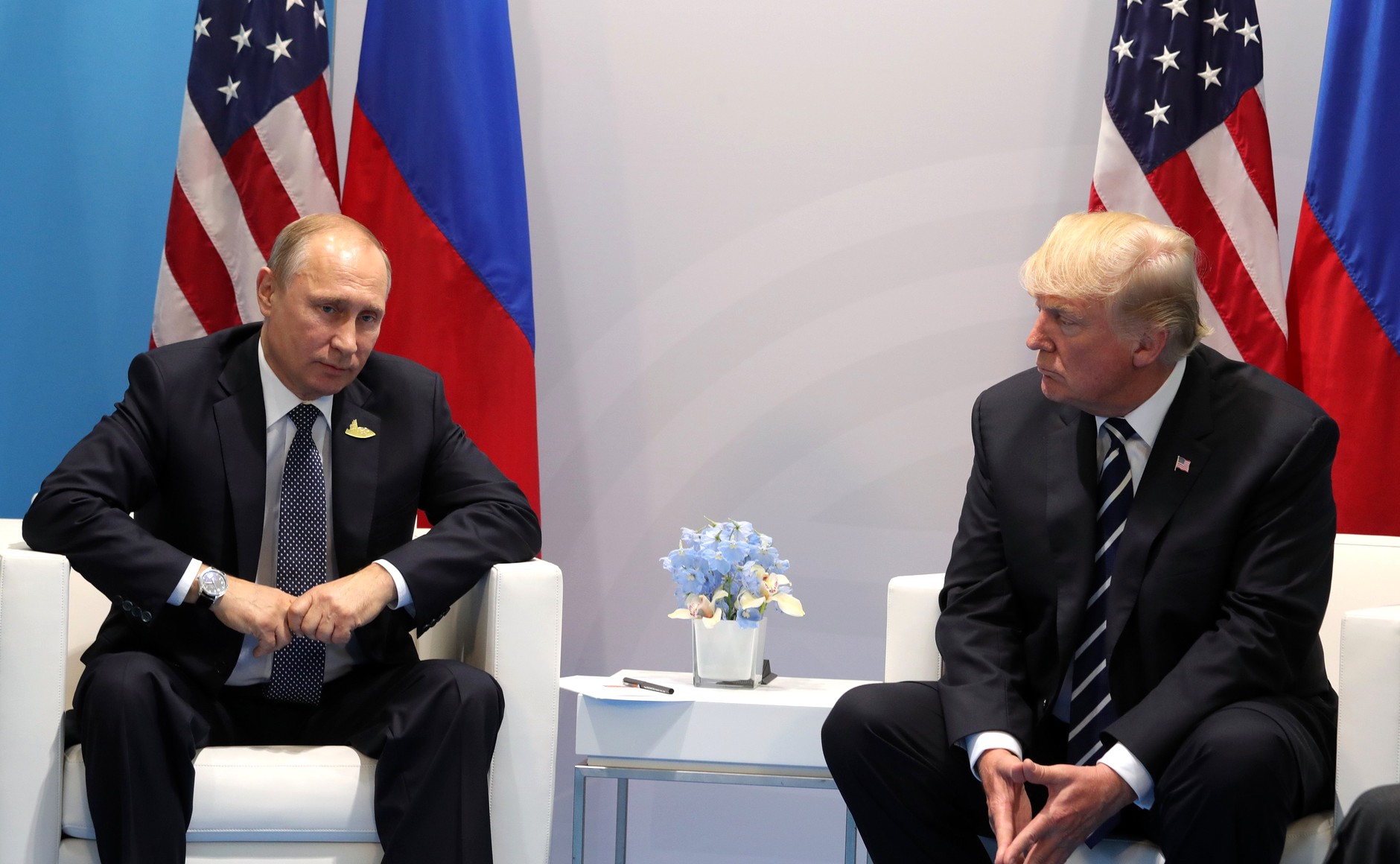For US President Donald Trump, policymaking by imposed chaos and deliberate incoherence has become the new normal. Again and again, we learn that this president’s seat-of-the-pants decisions are founded on contrivance; inevitably, these decisions will injure our interests and ideals at the same time. Such injuries, moreover, would impair the most basic expectations of both national security and international justice.
Most recently, there have been new satellite images confirming that North Korea is still moving ahead with its ballistic missile program. Reported on November 12 by David E. Sanger and William J. Broad, we now learn that Mr. Trump’s earlier reassurances about “peace” with North Korea were not merely silly, but also deliberate falsifications. There are corollary consequences for America’s allies in South Korea and Japan, some of them potentially existential. Very systematically, this president avoids any knowledge-based judgments.
Another recent example was Mr. Trump’s blaming California “mismanagement” for the unprecedented wildfires there. The president also recently declared his intention to unilaterally abrogate this country’s auspiciously stabilizing legal obligations under the INF treaty, which will impair our standing at international and domestic legal levels.
There are several further examples of President Trump undermining America’s most primary legal and moral obligations. All these examples reflect his core assumption that “attitude, not preparation” is what counts in negotiations or “deal-making.” Jared Kushner and Ivanka Trump have not yet been able to fashion a coherent plan to save the Middle East. Naturally, it must be someone else’s fault.
Donald Trump’s curious war on his own intelligence agencies and legal institutions is also strangely public. What still remains detached from any competent national assessment is Mr. Trump’s always underlying abhorrence of intellect and learning. Should anyone doubt this conspicuous loathing, just tune into the latest presidential “rally.”
Not much erudition there.
Donald Trump is no scholar. To be sure, no one ought to have expected anything else. But he is especially weak on all current matters of law and justice.
International law is not irrelevant to the United States, but remains an integral part of the law of the United States. Among other authoritative sources, it says this explicitly in the Constitution, the same document that Mr. Trump’s supporters are so fond of citing in reverential reference to “gun rights.”
Article 6 of the US Constitution clarifies that, “all treaties made, or which shall be made, under the authority of the United States, shall be the supreme law of the land.” The United States is a party to the 1951 Refugee Convention, which contains (Article 33) the basic principle of non-refoulement: “No Contracting State shall expel or return (“refouler”) a refugee in any manner whatsoever to the frontiers of territories where his life or freedom would be threatened on account of his race, religion, nationality membership of a particular social group or political opinion.”
Under President Trump’s fitfully-released executive orders, fully impermissible expulsions and returns have already become “official” policies of the United States.
Referencing all his grievous violations of both US and international law, Mr. Trump is still not the real “pathology.” Rather, his law and government-violating presidency is merely the most visible symptom of a much wider and more deeply systemic disorder. This disorder is a starkly anti-intellectual American society that frowns upon even a scintilla of genuine independent thought.
When the infant children of desperate refugees are housed in cages, this president, freshly tanned and bemused, flies to Florida or New Jersey for another round of golf. Significantly, though generally unknown to Americans, the due process clauses of the US Constitution protect all “persons,” and not just “citizens.” Jurisprudentially, this authoritative scope of competence is “beyond legal question.”
Ultimately, in both life and in law, truth is exculpatory. Derivatively, therefore, this is not by any means a normal and law-abiding American presidency. Accordingly, we must now very firmly inquire: Is this an excusable and remediable legal deformation, or is it rather an execrable dress rehearsal for a further-widening chaos?
Donald Trump cherishes chaos in both national and international politics. An alarming and deeply troubling affection, this is impossible to reconcile with even the most rudimentary legal expectations of US government or law.
Inevitably, Mr. Trump’s supporters, who still number in the several millions or tens of millions, yearn openly for the tangible warmth of “belonging,” of being part of a perpetually shrill and shrieking crowd, and — above all — of enjoying the numbingly false pleasures bestowed by comfortingly simplistic explanations. Complexity, after all, is always very difficult and daunting for those who would unhesitatingly reject intelligence and intellect in virtually any form.
“Intellect rots the brain,” cautioned Third Reich Propaganda Minister Joseph Goebbels at the 1935 Nuremberg rallies.
“I love the poorly educated,” offered candidate Donald Trump during the 2016 US presidential campaign.
Sometimes the conventional wisdom is unwise. The Founding Fathers of the United States did not generally believe in democracy. Most agreed with Alexander Hamilton’s trenchant observation that “the people are a great beast.” Thomas Jefferson, arguably the most democratic of the Founders, tied any hopes for a decent democratic ethos to a suitably challenging system of education, but even he continuously described “the people” in markedly unflattering terms.
Were he alive today, somehow bearing witness to the broadly stark declensions spawned by the Trump White House, this third president of the United States would likely have blamed a pervasively anti-intellectual and un-philosophical ethos of the underlying American democracy.
To more fully understand how Mr. Trump can repeatedly get away with feverishly debilitating policy errors, multiple illegalities, and limitless falsehoods, we must first look much more closely at the fractious and truth-averse American society from which he was so drawn. Any such observation would surely be distressing and unsettling, but the alternative is to leave intact a society from which still-future Donald Trump-style presidents could be adored by truth-loathing multitudes.


























